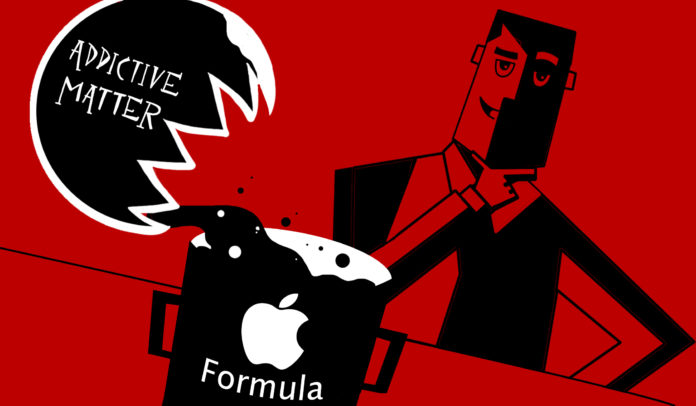It’s time for Apple to build a less addictive iPhone.
Apple comes out with a new phone approximately every six to nine months. Each new phone promises groundbreaking technology that changes the way we use our cellular devices. This gives the company ample opportunity to change the way they design their phones, as well as to change the way they influence our daily habits.
Apple CEO Tim Cook has said the iPhone has been “one of the most important, world-changing and successful products in history.”
But, are we sure the world has changed for the better with the iPhone? The iPhone can be placed in the same categories as some of the major technological innovations that we’ve had as a society: the printing press, satellites, ATMs, the internet, personal computers, etc.
As a culture, we are constantly consumed by the iPhone’s presence, whether we know it or not. Market data shows more than 90 million of the 223 million smartphone owners have iPhones. We have trouble connecting with the world around us nowadays. We would rather stay plugged into apps optimized for the iPhone such as Instagram, Facebook, Twitter, etc.
Our need to stay inundated with technology has led to less face-to-face socialization in public. Instead of having our heads raised, taking in our surroundings, greeting friends and seeing events as they take place, we keep our heads down, unaware of what is happening around us. People no longer know how to properly speak to one another. Writing fully thought-out sentences has taken a downturn with the emphasis of texting shorthand. However, our fleeting interactions and connectedness to our glowing screens is not completely our fault. Tech companies have begun to admit their own hand in our social shortcomings.
In an open letter to Apple, investors pointed out some of the grappling and addictive effects the phone has on students. In the letter, investors outlined a tendency for iPhone users to be less attentive in class, to lack sleep and to suffer from a higher likelihood of depression.
Though iPhones are not the only smartphones on the market, they are widely used and often on the cutting edge of technological advancements; many apps come out updates for iPhone before other operating systems. Therefore, Apple should be expected to lead the charge against their phones’ addictive nature. Several former Facebook employees, for example, have gone out of their way to suggest that the public is no match for the intelligent mechanisms of manipulation and engagement built into smartphone apps.
The New York Times shed light on Apple’s opportunity to make up for the company’s part in creating negative social phenomena.
Clearly, iPhones and smartphones are a fully integrated aspect of society at this point. Their creators have served the public by offering convenience, ease and entertainment. That being said, the addictive nature of these devices needs to be addressed. We can still have smartphones and have our life simplified by their many beneficial components. What Apple and other tech companies need to focus on now is offering these services without an addictive element since this aspect has been intentionally and knowingly added to the smartphone formula.
iPhones can be used as fantastic tools. They help us navigate an ever-changing world efficiently. However, it can and will become an extreme problem if instead of us using our iPhones, our iPhones are using us.






